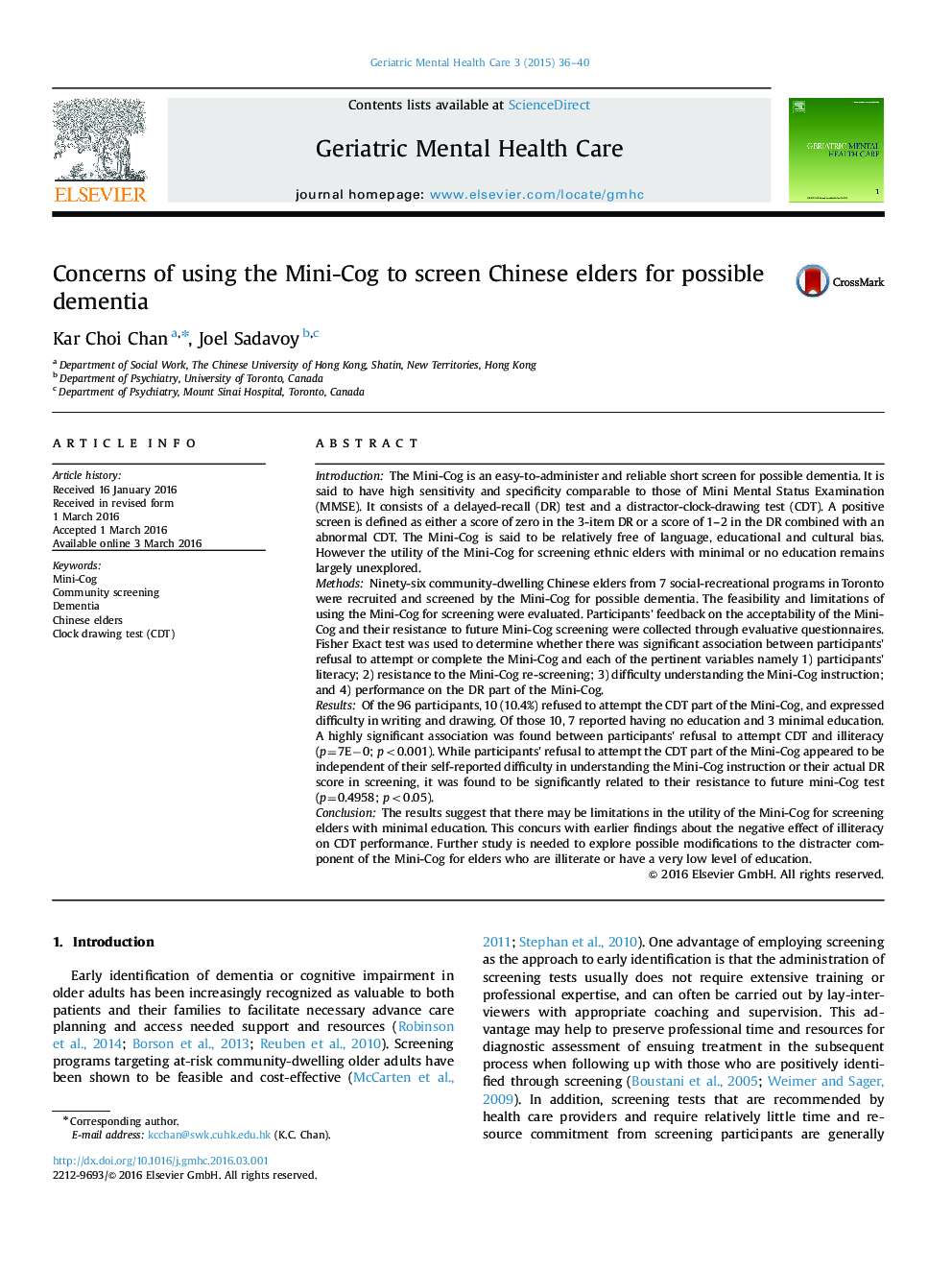| کد مقاله | کد نشریه | سال انتشار | مقاله انگلیسی | نسخه تمام متن |
|---|---|---|---|---|
| 909163 | 1473015 | 2015 | 5 صفحه PDF | دانلود رایگان |
IntroductionThe Mini-Cog is an easy-to-administer and reliable short screen for possible dementia. It is said to have high sensitivity and specificity comparable to those of Mini Mental Status Examination (MMSE). It consists of a delayed-recall (DR) test and a distractor-clock-drawing test (CDT). A positive screen is defined as either a score of zero in the 3-item DR or a score of 1–2 in the DR combined with an abnormal CDT. The Mini-Cog is said to be relatively free of language, educational and cultural bias. However the utility of the Mini-Cog for screening ethnic elders with minimal or no education remains largely unexplored.MethodsNinety-six community-dwelling Chinese elders from 7 social-recreational programs in Toronto were recruited and screened by the Mini-Cog for possible dementia. The feasibility and limitations of using the Mini-Cog for screening were evaluated. Participants' feedback on the acceptability of the Mini-Cog and their resistance to future Mini-Cog screening were collected through evaluative questionnaires. Fisher Exact test was used to determine whether there was significant association between participants' refusal to attempt or complete the Mini-Cog and each of the pertinent variables namely 1) participants' literacy; 2) resistance to the Mini-Cog re-screening; 3) difficulty understanding the Mini-Cog instruction; and 4) performance on the DR part of the Mini-Cog.ResultsOf the 96 participants, 10 (10.4%) refused to attempt the CDT part of the Mini-Cog, and expressed difficulty in writing and drawing. Of those 10, 7 reported having no education and 3 minimal education. A highly significant association was found between participants' refusal to attempt CDT and illiteracy (p=7E−0; p<0.001). While participants' refusal to attempt the CDT part of the Mini-Cog appeared to be independent of their self-reported difficulty in understanding the Mini-Cog instruction or their actual DR score in screening, it was found to be significantly related to their resistance to future mini-Cog test (p=0.4958; p<0.05).ConclusionThe results suggest that there may be limitations in the utility of the Mini-Cog for screening elders with minimal education. This concurs with earlier findings about the negative effect of illiteracy on CDT performance. Further study is needed to explore possible modifications to the distracter component of the Mini-Cog for elders who are illiterate or have a very low level of education.
Journal: Geriatric Mental Health Care - Volume 3, Issues 3–4, December 2015, Pages 36–40
